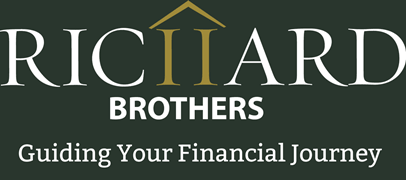 Employee communication plays a critical role in the success of your company’s retirement plan and corporate benefits programs. Effective communication about retirement benefits is largely the responsibility of the plan trustees and human resources (HR) department, with support from the plan’s sponsor and financial advisor.
Employee communication plays a critical role in the success of your company’s retirement plan and corporate benefits programs. Effective communication about retirement benefits is largely the responsibility of the plan trustees and human resources (HR) department, with support from the plan’s sponsor and financial advisor.
Problems arise when no one sees employee communication as their responsibility or an issue that must be addressed. If the communication from HR about your 401(k) plan and other employee benefits is poor or inconsistent, employees tend to interpret that as indifference to their needs. The plan’s participation often falters, and employees miss out on valuable retirement benefits.
Employee Communication For A Mobile Or Distributed Workforce
Here’s an example of how good communication — and a few tweaks to your 401(k) plan — could make a big difference for participation and employee satisfaction.
For contracting firms, it’s common for the workforce to regularly be on the road and at work sites, and use smartphones and tablets to stay in touch with the administrative team and senior management at the home office.
In this situation, however, it’s difficult for mobile workers to fill out enrollment forms and learn about the advantages of your 401(k) plan. Even if you make enrollment materials available online, people on a busy work site aren’t likely to fire up a computer and spend an hour reviewing enrollment materials. As a result, these workers may never see the plan as a priority, and fail to complete the paperwork.
The solution for this situation is two-fold:
While employees are able to opt out of the plan if they don’t want to make the contributions, the automatic process makes it easier for employees who want to easily participate.
Auto-enrollment is increasingly the norm for good 401(k) plans. The idea is that getting older and retiring is inevitable, so it doesn’t make sense to treat retirement benefits as optional. But while this tweak is a great way to improve plan participation, it’s no substitute for communication about employee retirement benefits.
5 Employee Communication Tips For Your 401(k) Plan
2. Communicate in a variety of formats: People learn in different ways, so consider using a combination of email, group meetings and one-on-one meetings, and provide webinars, blogs and hard copies of documents. All of these communication channels help to ensure your message is reaching employees.
3. Make sure plan information bears your company’s name: It may sound trivial, but studies have shown that having the name of the company on retirement plan information significantly increases enrollment and participation.
4. Review all employee comments and issues with the plan: Keep track of employees’ questions, complaints and comments about your plan, and review them with the HR team, plan sponsor and advisor. What recurring issues emerge, and what is the solution? Are the employees getting what they need?
5. Assess the knowledge of the employee base to plan training: Survey employees to gauge their knowledge level about the 401(k) plan, retirement investing and financial planning topics. Their responses should reveal areas where more education is needed, helping you to plan additional training sessions.
When lines of communication are available and open in your company, it’s much easier to resolve issues and identify areas for improvement, helping to make your retirement benefits part of the company’s success plan for all to enjoy.
Worried about the cost of your current 401(k) plan? Request a free, 30-minute consultation with Richard Brothers and start maximizing your plan’s value.
Richard Brothers Financial Advisors


